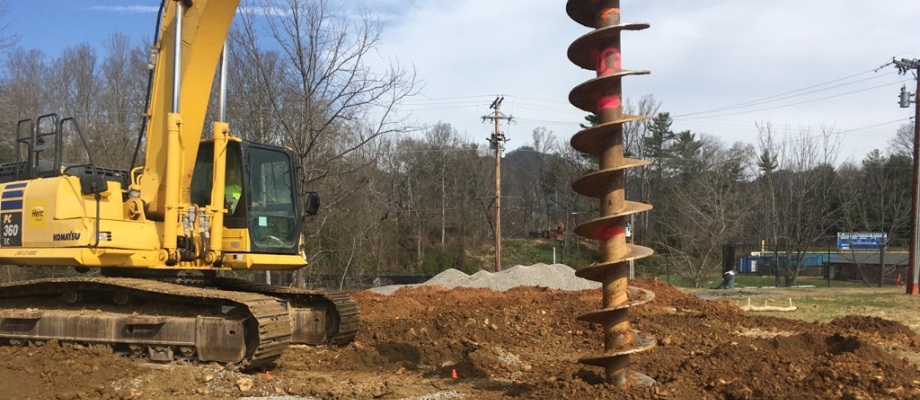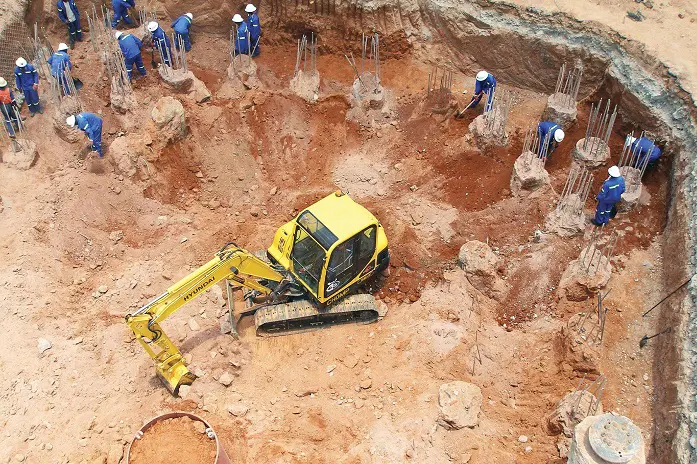The Evolution of Civil Consulting Engineers in the Modern Times
The Evolution of Civil Consulting Engineers in the Modern Times
Blog Article
Comprehending the Comprehensive Duty of Geotechnical Engineers in Ground Investigation and Soil Analysis for Construction Jobs
Geotechnical engineers are important to the success of building tasks, offering important understandings through extensive ground examinations and soil analysis. Their experience in examining dirt actions and employing advanced screening strategies educates crucial decisions that support structural honesty and safety and security.
Duty of Geotechnical Designers
The essential function of geotechnical designers in building projects can not be overemphasized, as they provide crucial understandings right into soil habits and site conditions. These professionals are tasked with assessing the viability of the ground for various kinds of frameworks, ensuring safety and security and security throughout the construction procedure. Their know-how includes a variety of activities, including website characterization, dirt tasting, and lab testing, which are crucial for identifying the physical and mechanical residential or commercial properties of the soil.
Geotechnical engineers use their findings to create fundamental layouts that fit load-bearing needs and reduce dangers associated to soil liquefaction, incline, and settlement security. They play a crucial function in recognizing potential hazards, such as groundwater fluctuations and contamination, which can significantly affect job practicality. They work together with designers, civil designers, and specialists to guarantee that geotechnical factors to consider are incorporated right into the overall design and building phases.
Ground Investigation Strategies
Ground examination strategies form the foundation of geotechnical design, making it possible for engineers to get a thorough understanding of subsurface problems. These strategies are important for analyzing soil properties, establishing groundwater degrees, and determining possible geological risks.
Typical methods include borehole exploration, which enables for the removal of soil examples at different depths, supplying important information for evaluation. In addition, sitting screening techniques, such as Standard Penetration Examinations (SPT) and Cone Infiltration Tests (CPT), are employed to review dirt toughness and density straight in the ground.
Geophysical approaches additionally play a considerable duty in ground investigations. Methods such as seismic studies and electrical resistivity tomography aid assess subsurface characteristics without substantial excavation. geotech engineer. These non-invasive techniques are especially helpful in sensitive or big areas where interruption have to be minimized
Furthermore, exploratory trenches can be dug deep into to aesthetically evaluate dirt layers and recognize any type of anomalies. Each of these techniques contributes unique understandings, permitting geotechnical designers to create exact site evaluations and educate style decisions. In summary, a mix of these ground investigation strategies is important for effective construction projects, guaranteeing safety and structural stability.
Soil Evaluation Methods
Dirt evaluation techniques are vital for understanding the physical and chemical buildings of dirt, which directly influence the design and building of structures and other frameworks. Various techniques are used to assess soil characteristics, making sure that geotechnical engineers obtain exact information for notified decision-making.
One typically made use of technique is grain size evaluation, which establishes the circulation of particle dimensions within a soil example. This is crucial for identifying dirt types and predicting their habits under lots. One more crucial technique is Atterberg limits testing, which evaluates the plasticity blog and dampness material of fine-grained soils, providing understandings right into their engineering buildings.

Field examinations, such as Basic Infiltration Tests (SPT) and Cone Infiltration Tests (CPT), deal useful in-situ information regarding soil strength and stratification. Collectively, these dirt analysis methods form the foundation of geotechnical examination, enabling engineers to make effective and secure frameworks tailored to the specific conditions of the website.
Risk Mitigation Methods
Executing effective danger mitigation techniques is vital for geotechnical engineers to resolve prospective obstacles in building and construction projects. These techniques are vital in identifying, analyzing, and managing threats related to soil conditions, website security, and groundwater fluctuations, which can detrimentally affect job outcomes.
One primary strategy entails performing extensive website examinations that use sophisticated geophysical strategies and comprehensive dirt sampling. By acquiring exact information on subsurface conditions, designers can make enlightened decisions on style and building and construction methods. Additionally, using anticipating modeling devices permits for the simulation of different situations, allowing designers to predict possible troubles and apply safety nets.
In addition, establishing clear communication channels among task stakeholders promotes a joint approach to risk monitoring. Routine updates and examinations make sure that all parties are mindful of the developing site conditions and can adapt their techniques appropriately.

Impact on Building Jobs
The effectiveness of risk reduction strategies directly affects the overall success of building tasks. Geotechnical engineers play a critical role in this domain name, as their experience in ground examination and soil analysis educates vital choices throughout the construction see this website process. By precisely assessing soil conditions and recognizing potential risks, these experts allow task teams to develop effective options that lower dangers connected with ground instability, water infiltration, and various other geotechnical obstacles.
The influence of comprehensive geotechnical analysis is evident in various aspects of building and construction projects, including cost monitoring, task timelines, and architectural stability. Early recognition of concerns permits prompt treatments, lessening pricey hold-ups and spending plan overruns. Moreover, an extensive understanding of site problems boosts the design and design procedure, making sure that frameworks are built to hold up against environmental pressures and possible all-natural calamities.
Eventually, the payments of geotechnical engineers are integral to the successful execution of building and construction tasks. Their job not only fosters safety and security and compliance with guidelines however also improves the lasting sustainability of frameworks, making sure that they execute successfully throughout their intended life-span. The collaboration between geotechnical teams and various other stakeholders is necessary for achieving optimal results in construction undertakings.
Final Thought
To conclude, geotechnical designers carry out a critical function in building and construction projects with extensive ground examinations and dirt evaluations. Their competence in examining soil habits, utilizing different investigation techniques, and implementing risk reduction approaches dramatically adds to the architectural integrity and safety and security of developed settings. By collaborating with multidisciplinary groups, these professionals improve job performance and make sure conformity with safety and security requirements, ultimately bring about effective building outcomes and decreased potential risks.
Geotechnical designers are indispensable to the success of building and construction projects, providing essential understandings with comprehensive ground examinations and soil evaluation.The critical duty of geotechnical designers in construction projects can not be overstated, as they give important understandings right into dirt behavior and site conditions. Their competence includes a broad variety of activities, including website characterization, dirt tasting, and laboratory screening, which are crucial for establishing the find more information physical and mechanical properties of the soil.
By properly examining soil conditions and recognizing prospective threats, these specialists make it possible for project teams to develop reliable options that lower threats associated with ground instability, water seepage, and various other geotechnical difficulties.
In verdict, geotechnical designers execute a vital function in construction projects via detailed ground investigations and soil analyses.
Report this page